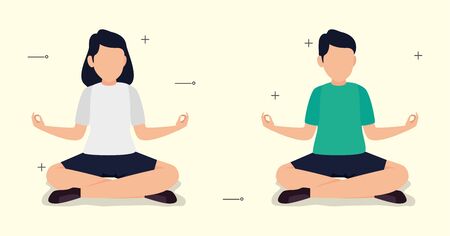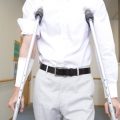Introduction to Indias Thriving Startup Ecosystem
India’s entrepreneurial journey is a gentle tapestry woven with resilience, creativity, and the unique spirit of jugaad—a word that captures the ingenious Indian knack for frugal innovation and problem-solving. Over recent years, this resourceful approach has blossomed into a vibrant startup ecosystem, positioning India among the top global hubs for innovation. Young visionaries, inspired by both necessity and aspiration, are driving transformative change across diverse sectors. The socio-economic landscape—marked by a vast population, diverse needs, and rapid digital adoption—acts as fertile ground for entrepreneurial growth. In this environment, startups are not just pursuing profits but are seeking to create meaningful impact, especially in areas like healthcare and rehabilitation. The emergence of digital rehab solutions from Indian startups reflects this blend of empathy and enterprise, addressing pressing challenges with culturally rooted, tech-enabled answers. This article gently explores how these innovative ventures embody the spirit of Indian entrepreneurship and respond thoughtfully to the country’s evolving needs.
The Evolution of Digital Health and Rehabilitation in India
India’s journey towards digital transformation in the healthcare and rehabilitation sectors has been shaped by unique local needs, diverse cultural values, and a strong drive for innovation. Over the past decade, Indian startups have played a crucial role in bridging gaps in access to quality health services, especially for elderly and differently-abled populations in rural and urban communities alike. The evolution of digital health is not merely about technological adoption; it reflects a sensitive approach to address deeply rooted social and cultural barriers.
Accessibility: Reaching Every Corner of Bharat
One of the major hurdles in Indian healthcare has always been accessibility. Digital health startups are leveraging mobile platforms, telemedicine, and cloud-based solutions to bring essential services closer to people—no matter where they live. Whether it is remote physiotherapy sessions for seniors in Kerala or AI-powered diagnostic tools serving patients in Uttar Pradesh, these innovations ensure that geography no longer restricts care.
| Challenge | Digital Solution | Cultural Sensitivity |
|---|---|---|
| Lack of physical rehab centres in villages | Tele-rehabilitation apps with local language support | Customised content respecting regional beliefs |
| Low digital literacy among elders | User-friendly interfaces & voice-guided navigation | Family-inclusive training modules |
| Diverse traditions and practices | Personalised wellness plans integrating Ayurveda/Yoga | Respecting dietary and lifestyle preferences |
Culturally-Sensitive Approaches: Blending Tradition with Technology
The Indian context requires more than just translating global digital solutions; it demands an understanding of regional languages, customs, and holistic healing traditions. Startups are designing digital rehab programs that integrate elements like Yoga therapy, Ayurveda consultations, and community-based care models. Such approaches not only improve engagement but also foster trust among users who may be wary of modern technology. By involving caregivers and families—who hold a central place in Indian society—these solutions ensure continuity of care and emotional support throughout the rehabilitation journey.

3. Innovative Indian Startups: Case Studies and Key Players
India’s dynamic startup ecosystem has given rise to a new generation of healthcare innovators, especially in the digital rehabilitation space. These homegrown startups are not only leveraging advanced technology but are also deeply rooted in the unique needs and cultural fabric of diverse Indian communities. Let us explore some inspiring case studies and highlight key players who are making a tangible difference at the grassroots level.
Practo: Transforming Access to Rehabilitation Services
Practo, a Bengaluru-based health tech giant, began by bridging gaps in doctor-patient communication. Today, it offers tele-rehabilitation and remote monitoring services tailored for post-surgical patients and those with chronic conditions. Practo’s easy-to-use app is available in multiple Indian languages, ensuring accessibility for elderly users and rural families, who often face mobility or transport challenges.
ReAble: Empowering Rural Communities
Mumbai’s ReAble focuses on affordable digital rehab solutions for stroke survivors and people with disabilities in tier-2 and tier-3 towns. By collaborating with local physiotherapists and using WhatsApp-based video guidance, ReAble has made therapy accessible even in villages with limited internet connectivity. Their culturally sensitive approach includes family education, which aligns with India’s tradition of joint family caregiving.
Dozee: Remote Monitoring for Elderly Care
Pune-based Dozee utilizes AI-powered contactless health monitors that allow seniors to undergo rehabilitation from the comfort of their homes. The platform sends real-time updates to both caregivers and doctors, creating an efficient support system that respects both privacy and the traditional preference for home-based care among Indian elders.
Regional Success Stories
In Tamil Nadu, Chennai startup “RehabPathways” partners with local NGOs to deliver vernacular language rehabilitation modules for accident survivors. Meanwhile, a Delhi-based initiative called “Swasthya Setu” integrates Ayurvedic principles into digital therapy plans, blending modern science with age-old wisdom cherished by many Indian families.
The Ripple Effect on Ground-Level Healthcare
These startups exemplify the power of innovation rooted in India’s social realities. By combining cutting-edge digital tools with local language support, culturally relevant content, and collaboration with community health workers (ASHA), they are breaking down barriers to quality rehabilitation. Their efforts are creating ripple effects—improving recovery rates, reducing urban-rural disparities, and empowering families across regions from Gujarat to Assam.
Bridging the Rural-Urban Divide Through Technology
India’s vast and diverse landscape encompasses bustling metropolises as well as remote villages. While urban centers have quick access to advanced healthcare, millions in Bharat — the heartland of small towns and rural communities — often face limited rehabilitation options due to language barriers, inadequate infrastructure, and lack of specialist resources. Innovative Indian startups are rising to this challenge by crafting digital rehab solutions that bridge these gaps, ensuring equitable care across the nation.
Localisation: The Key to Accessibility
One of the most significant strides made by Indian startups is tailoring digital rehab platforms for regional inclusivity. By integrating multiple vernacular languages, simple audio-visual cues, and culturally relevant content, these platforms empower users from diverse backgrounds. For example, apps now offer physiotherapy guidance in Hindi, Tamil, Bengali, Telugu, and more — making it possible for elderly citizens in a remote village or a caregiver in a tier-3 town to confidently follow rehab routines.
Overcoming Infrastructure Hurdles
Connectivity issues and device limitations are common in Bharat’s hinterlands. Startups address these challenges through lightweight apps that work offline or with low bandwidth. Some also provide phone-based consultations using interactive voice response (IVR) systems so even those without smartphones can access expert advice. Partnerships with local health workers further extend the reach of digital rehab into villages where internet penetration remains low.
Comparing Urban and Rural Digital Rehab Access
| Aspect | Urban Areas | Rural/Bharat |
|---|---|---|
| Language Support | Mainly English, Hindi | Multiple local languages; audio/video guides |
| Device Availability | Smartphones/tablets common | Feature phones prevalent; shared devices |
| Internet Connectivity | High-speed broadband/wifi | Low bandwidth/spotty network; offline modes essential |
| User Training & Support | Self-guided tutorials; chat support | Community health worker assistance; IVR helplines |
| Cultural Adaptation | Generalised content | Culturally nuanced programs; traditional exercises included |
The journey to bridge India’s rural-urban divide in digital rehab is ongoing but promising. By listening to the pulse of Bharat and innovating with empathy, Indian startups are not only transforming rehabilitation but also fostering a more inclusive healthcare ecosystem for all generations.
5. Acceptance and Adaptation Among Older Adults
Across India, the integration of digital rehab solutions by innovative startups has gradually begun to reshape the way older adults interact with technology. While initial hesitation is common, many seniors are now embracing these tools as a result of thoughtful design, patient support, and culturally sensitive outreach. Family plays a pivotal role in this journey. In many Indian households, younger family members introduce elders to new devices and applications—often sitting together during evening chai or after meals, guiding them through every step in a gentle and reassuring manner.
Local language support is another crucial factor in encouraging acceptance among seniors. Startups increasingly offer interfaces and customer support in Hindi, Tamil, Bengali, Telugu, Marathi, and other regional languages, breaking down barriers that previously caused apprehension. This localisation not only fosters confidence but also allows elders to engage with rehab programs at their own pace—be it daily yoga guidance via video call or physiotherapy reminders through WhatsApp messages.
Community outreach further enhances adaptation. Digital literacy camps held at local temples, senior citizen clubs, or community centres create safe spaces for elders to learn collectively. These gatherings often include demonstrations led by compassionate trainers who understand the unique learning rhythms of older adults. The presence of peers provides encouragement; seeing others of similar age trying out wearable health monitors or booking virtual doctor appointments inspires greater willingness to participate.
The slow yet steady acceptance of digital rehab solutions among India’s silver generation is also rooted in trust-building. Startups frequently collaborate with respected local doctors, physiotherapists, and ASHA workers (Accredited Social Health Activists) who act as familiar faces bridging the gap between technology and tradition. When trusted voices endorse a device or app as beneficial for managing joint pain or monitoring blood pressure, elders feel reassured and more open to giving it a try.
Ultimately, the journey towards digital adaptation among Indian seniors is marked by patience, empathy, and respect for lifelong habits. As more older adults experience positive outcomes—from improved mobility to reduced feelings of isolation—the collective mindset shifts gently toward acceptance. This transformation reflects not just technological progress but also the enduring strength of intergenerational bonds and community spirit found across India’s vibrant landscape.
6. Challenges, Opportunities, and the Road Ahead
India’s digital rehab landscape stands at a unique crossroads, shaped by its diverse demography and fast-evolving tech ecosystem. While innovative startups are making impressive strides in bridging healthcare gaps, challenges persist—particularly in rural outreach, affordable access, and digital literacy. The vast linguistic diversity and varying levels of internet connectivity across Bharat present hurdles that require creative, localised solutions. Yet, these very challenges open doors to immense opportunities. With the government’s push towards Digital India and Ayushman Bharat initiatives, there is a strong foundation for public-private partnerships and grassroots innovation.
Emerging opportunities abound as Indian startups harness AI, IoT, and telehealth platforms tailored for regional needs. Efforts to blend traditional healing wisdom with modern rehabilitation technologies resonate deeply with Indian values and offer culturally sensitive care. As more youth embrace entrepreneurship and global investors turn their gaze towards Indian healthtech, the sector is poised for exponential growth.
Looking ahead, the future of digital rehab in India will depend on collaborative efforts—between innovators, policymakers, care providers, and communities. Fostering awareness campaigns in local languages, upskilling healthcare workers in digital tools, and ensuring equitable infrastructure will be crucial. As we walk this path together, the journey may be slow but steady—a reflection of India’s time-honoured approach: caring for every member of society with empathy and patience. With mindful innovation and inclusive vision, Indian startups have the potential to set a global example in digital rehabilitation solutions.


